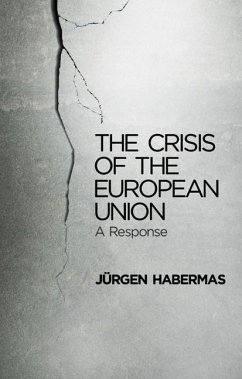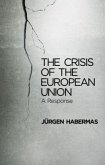Translated by Ciaran Cronin.
In the midst of the current crisis that is threatening to derail the historical project of European unification, Jürgen Habermas has been one of the most perceptive critics of the ineffectual and evasive responses to the global financial crisis, especially by the German political class. This extended essay on the constitution for Europe represents Habermas's constructive engagement with the European project at a time when the crisis of the eurozone is threatening the very existence of the European Union. There is a growing realization that the European treaty needs to be revised in order to deal with the structural defects of monetary union, but a clear perspective for the future is missing. Drawing on his analysis of European unification as a process in which international treaties have progressively taken on features of a democratic constitution, Habermas explains why the current proposals to transform the system of European governance into one of executive federalism is a mistake. His central argument is that the European project must realize its democratic potential by evolving from an international into a cosmopolitan community. The opening essay on the role played by the concept of human dignity in the genealogy of human rights in the modern era throws further important light on the philosophical foundations of Habermas's theory of how democratic political institutions can be extended beyond the level of nation-states.
Now that the question of Europe and its future is once again at the centre of public debate, this important intervention by one of the greatest thinkers of our time will be of interest to a wide readership.
Hinweis: Dieser Artikel kann nur an eine deutsche Lieferadresse ausgeliefert werden.
In the midst of the current crisis that is threatening to derail the historical project of European unification, Jürgen Habermas has been one of the most perceptive critics of the ineffectual and evasive responses to the global financial crisis, especially by the German political class. This extended essay on the constitution for Europe represents Habermas's constructive engagement with the European project at a time when the crisis of the eurozone is threatening the very existence of the European Union. There is a growing realization that the European treaty needs to be revised in order to deal with the structural defects of monetary union, but a clear perspective for the future is missing. Drawing on his analysis of European unification as a process in which international treaties have progressively taken on features of a democratic constitution, Habermas explains why the current proposals to transform the system of European governance into one of executive federalism is a mistake. His central argument is that the European project must realize its democratic potential by evolving from an international into a cosmopolitan community. The opening essay on the role played by the concept of human dignity in the genealogy of human rights in the modern era throws further important light on the philosophical foundations of Habermas's theory of how democratic political institutions can be extended beyond the level of nation-states.
Now that the question of Europe and its future is once again at the centre of public debate, this important intervention by one of the greatest thinkers of our time will be of interest to a wide readership.
Hinweis: Dieser Artikel kann nur an eine deutsche Lieferadresse ausgeliefert werden.








